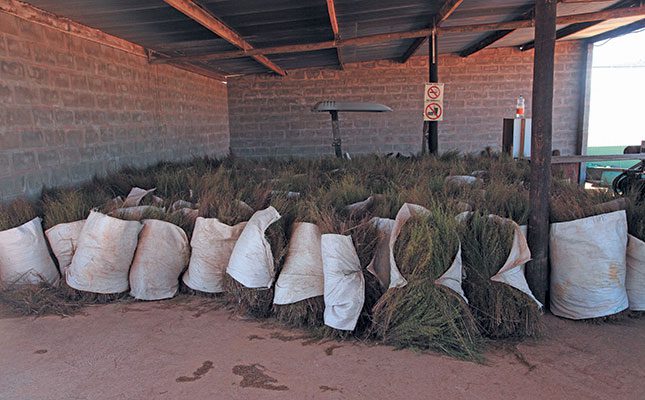
According to Dr Kobus Laubscher, agricultural economist, this was good news indeed as today (16 January 2024), marked International Rooibos Day, a global celebration of the iconic South African herbal tea.
“This is an excellent example of bilateral inter-governmental negotiations based on a demand pull supported by a supply push. It meant that the rooibos tea industry is able to compete in the market on a basis of product value and not sentiment. Europe remains the biggest off-taker of local rooibos, but it could be expected that the decision by the Chinese authorities to lower tariffs could also spill over to that continent. Increased exports would invariably also stimulate development on expansion on grassroots level,” he told Farmers’ Weekly.
According to the Department of Trade, Industry and Competition, China, the world’s largest tea market, previously had tariffs ranging from 15% to 30% on rooibos tea. This was reduced to 6%.
The department said rooibos was a unique South African tea that had gained a strong position in global markets, with hundreds of millions of rand of annual exports in 2022.
South Africa’s Minister of Trade, Industry and Competition, Ebrahim Patel, in August 2023 raised the tariff duties on rooibos with his counterpart, the Chinese Minister of Commerce, Wang Wentao, during the 8th meeting of the China-South Africa Joint Economic and Trade Commission. He requested that China considers a request to reclassify rooibos tea and reduce the duties.
Following further consideration from the Chinese side, the Customs Tariff Commission of the State Council of China consequently announced its decision to adopt a tariff code of 6%.
According to the Rooibos Council of South Africa, approximately 20 000t of rooibos is produced in South Africa every year. This creates employment for more than 5 000 people.
China is the seventh-largest importer of South African rooibos out of a total of 45 countries in 2023. The importing countries included Japan, the Netherlands and Germany.
Rooibos was traditionally grown in the Cederberg mountains north of Cape Town. The rooibos industry is currently worth an estimated R600 million. Interestingly, South Africa began exporting the tea as early as 1904.
“China is currently South Africa’s largest global trading partner, with Chinese customs reporting two-way trade of more than R900 billion. We look forward to continuing our engagements with our Chinese counterparts as we seek to move exports to a greater basket of value-added agricultural and industrial products,” Patel added.












